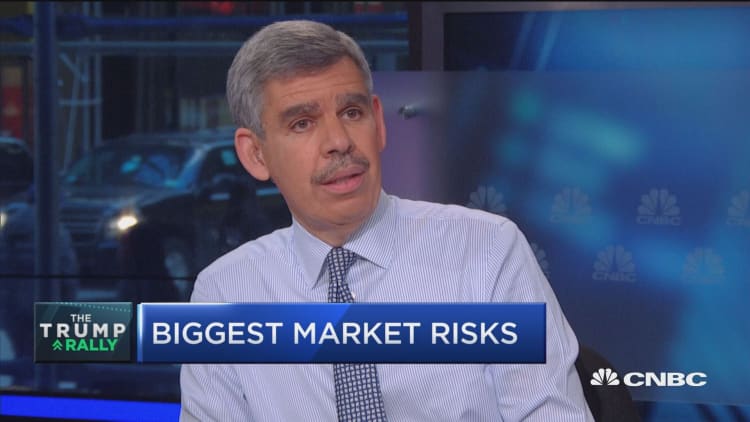
As bank stocks stabilize, a "big negative shock" could cause major volatility in areas newly exposed to risk, economist Mohamed El-Erian told CNBC on Wednesday.
"The risk has migrated from banks to non-banks, and that is going to be an issue," Allianz's chief economic advisor told "Squawk Box." "I think the biggest risk, if you ask me what happens if we get a big negative shock, is liquidity."
Liquidity refers to the volume and pace at which assets or equities can be bought or sold in the market without a change in price. Exchange-traded funds, or ETFs, offer liquidity, but El-Erian said he is not so sure how aptly some of them can deliver it.
"ETFs promise liquidity at reasonable prices. It's not clear that some of the ETFs in the high-yield space, for example, can actually provide that," he said.
And, if U.S. markets are subject to another surprise like the 2013 "Taper Tantrum" or a negative market reaction to political elections in Europe, the popular equity funds could struggle to deliver on their promise, El-Erian said.
"If you're looking for where the risk has migrated, it has migrated ... within the non-banks, to the assumption that liquidity will be there when the paradigm changes," the economist said. "And what we've found over and over again is when that happens ... liquidity becomes very elusive."
El-Erian said those investing in more risk-exposed ETFs should accept the fact that if they must reposition their portfolio in the face of turbulence in the market, they may have to do so at a big loss.
His advice: If you reposition now, take yourself out of higher-yield investments and into lower-yield ones. You'll make less money, he said, but "you're going to be able to reposition yourself later at a much lower cost. You build more resilience and agility in doing so."


